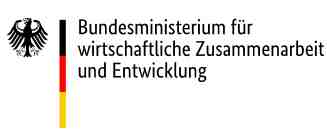Letter to Federal Minister Müller on the Supply Chain Act
 In view of the resistance from the economy to the planned supply chain law, the XertifiX chairman Ingrid Sehrbrock and the treasurer Peter Weiß wrote a letter to Federal Minister Dr. Gerd Müller wrote, in which they support the minister against all opposition to pass the supply chain law agreed in the coalition agreement during this legislative period.
In view of the resistance from the economy to the planned supply chain law, the XertifiX chairman Ingrid Sehrbrock and the treasurer Peter Weiß wrote a letter to Federal Minister Dr. Gerd Müller wrote, in which they support the minister against all opposition to pass the supply chain law agreed in the coalition agreement during this legislative period.
We keep hearing legitimate doubts from our licensees as to how companies that comply with their due diligence and, for example, have their supply chains checked by XertifiX, should compete against other companies that do nothing of the kind. There is an imbalance in the market economy that needs to be remedied. A supply chain law is a very suitable instrument for this! It is not for nothing that large companies such as the Rewe Group, Tchibo or Nestlé stand behind such a law. We expect that given the importance of the new law for the entire German economy, the German Minister for Economic Affairs Peter Altmeier will also give up his resistance and proactively support the law.
 At the 5th Future Forum “Making Globalization Righteous”, Federal Minister Gerd Müller clearly stated that companies are responsible for their supply chains: “Companies must ensure that human rights are respected in supply chains.” He emphasizes positively that many companies are now voluntarily moving forward. But he also points out that this is far from sufficient: “If we come to the conclusion at the end of the year that the voluntary approaches are not sufficient, we will legally oblige the big companies. Best at the European level – if necessary, but also nationally. That’s how we set it in the coalition agreement. ”
At the 5th Future Forum “Making Globalization Righteous”, Federal Minister Gerd Müller clearly stated that companies are responsible for their supply chains: “Companies must ensure that human rights are respected in supply chains.” He emphasizes positively that many companies are now voluntarily moving forward. But he also points out that this is far from sufficient: “If we come to the conclusion at the end of the year that the voluntary approaches are not sufficient, we will legally oblige the big companies. Best at the European level – if necessary, but also nationally. That’s how we set it in the coalition agreement. ” “China exports more than one million tons of granite stones annually to Germany. These are sold very favorably among other things in Do-It-Yourself Markets, for example as paving stones, wall cladding or kitchen plates. However, hardly a buyer knows that the granite stones are often produced under conditions that are harmful to the health, sometimes even life-threatening. This is attributable to inspection reports and pictures from Chinese quarries and processing companies, which were presented to Frontal 21 and are now being published for the first time. In Germany, however, only one of the six major DIY stores, toom, is active against such violations of the international workplace safety requirements. […]” (Extract from the ZDF announcement of the TV Broadcasting)
“China exports more than one million tons of granite stones annually to Germany. These are sold very favorably among other things in Do-It-Yourself Markets, for example as paving stones, wall cladding or kitchen plates. However, hardly a buyer knows that the granite stones are often produced under conditions that are harmful to the health, sometimes even life-threatening. This is attributable to inspection reports and pictures from Chinese quarries and processing companies, which were presented to Frontal 21 and are now being published for the first time. In Germany, however, only one of the six major DIY stores, toom, is active against such violations of the international workplace safety requirements. […]” (Extract from the ZDF announcement of the TV Broadcasting) As a first DIY store chain in Germany, toom Baumarkt has certified natural stones from XertifiX. We are delighted that consumers will be able to buy certified natural stones in DIY stores all over Germany. If you want to pave the garage entrance, the terrace or garden paths with a natural conscience, now he / she has the choice!
As a first DIY store chain in Germany, toom Baumarkt has certified natural stones from XertifiX. We are delighted that consumers will be able to buy certified natural stones in DIY stores all over Germany. If you want to pave the garage entrance, the terrace or garden paths with a natural conscience, now he / she has the choice! Finally, there is a new legal opinion, which takes into account and takes due account of changes in the law at EU and federal level. The report draws attention to the reform of the German Public Procurement Act, which entered into force on 18 April 2016. This has been implemented by the EU directive on the award of 2014.
Finally, there is a new legal opinion, which takes into account and takes due account of changes in the law at EU and federal level. The report draws attention to the reform of the German Public Procurement Act, which entered into force on 18 April 2016. This has been implemented by the EU directive on the award of 2014.
